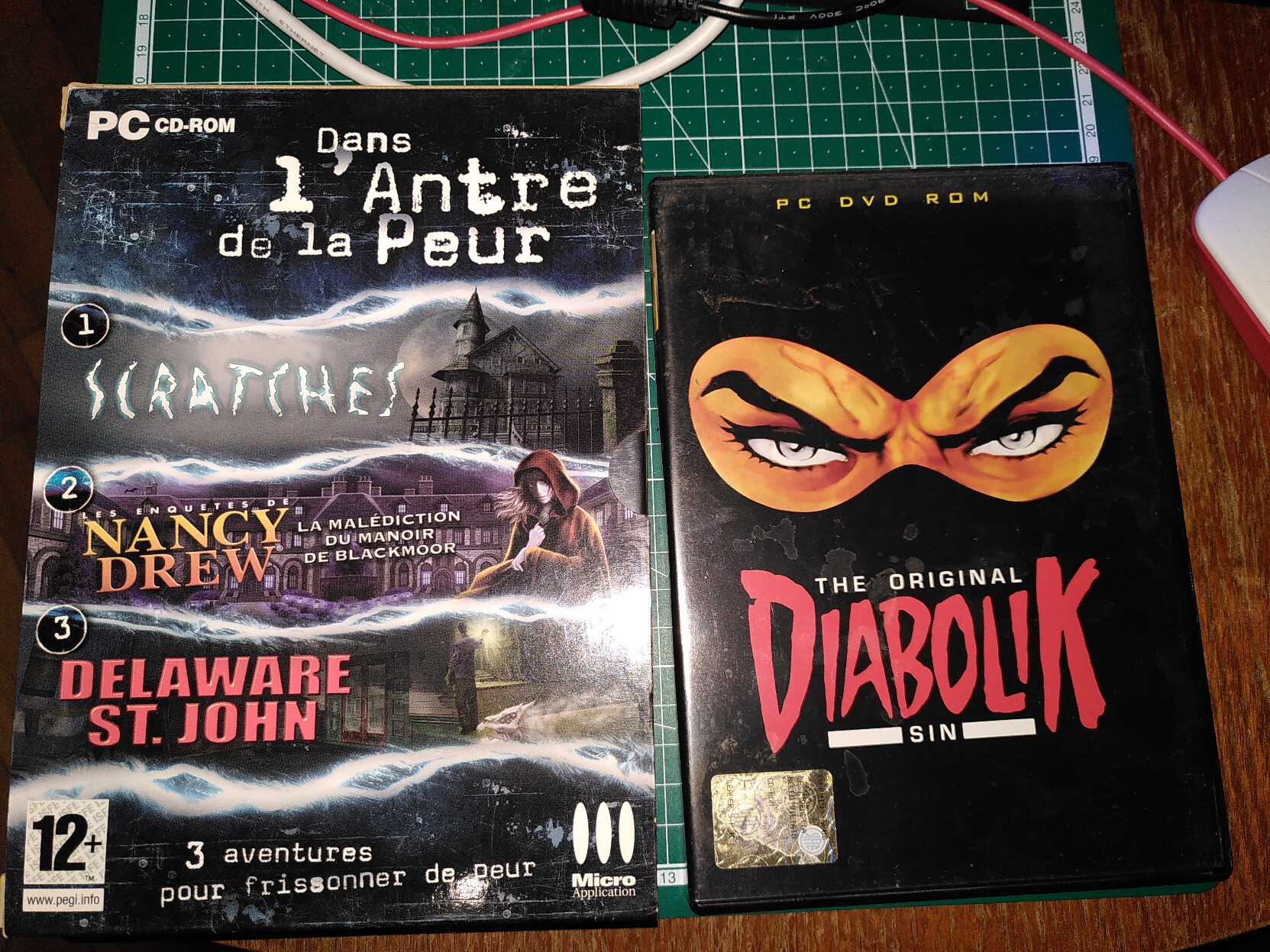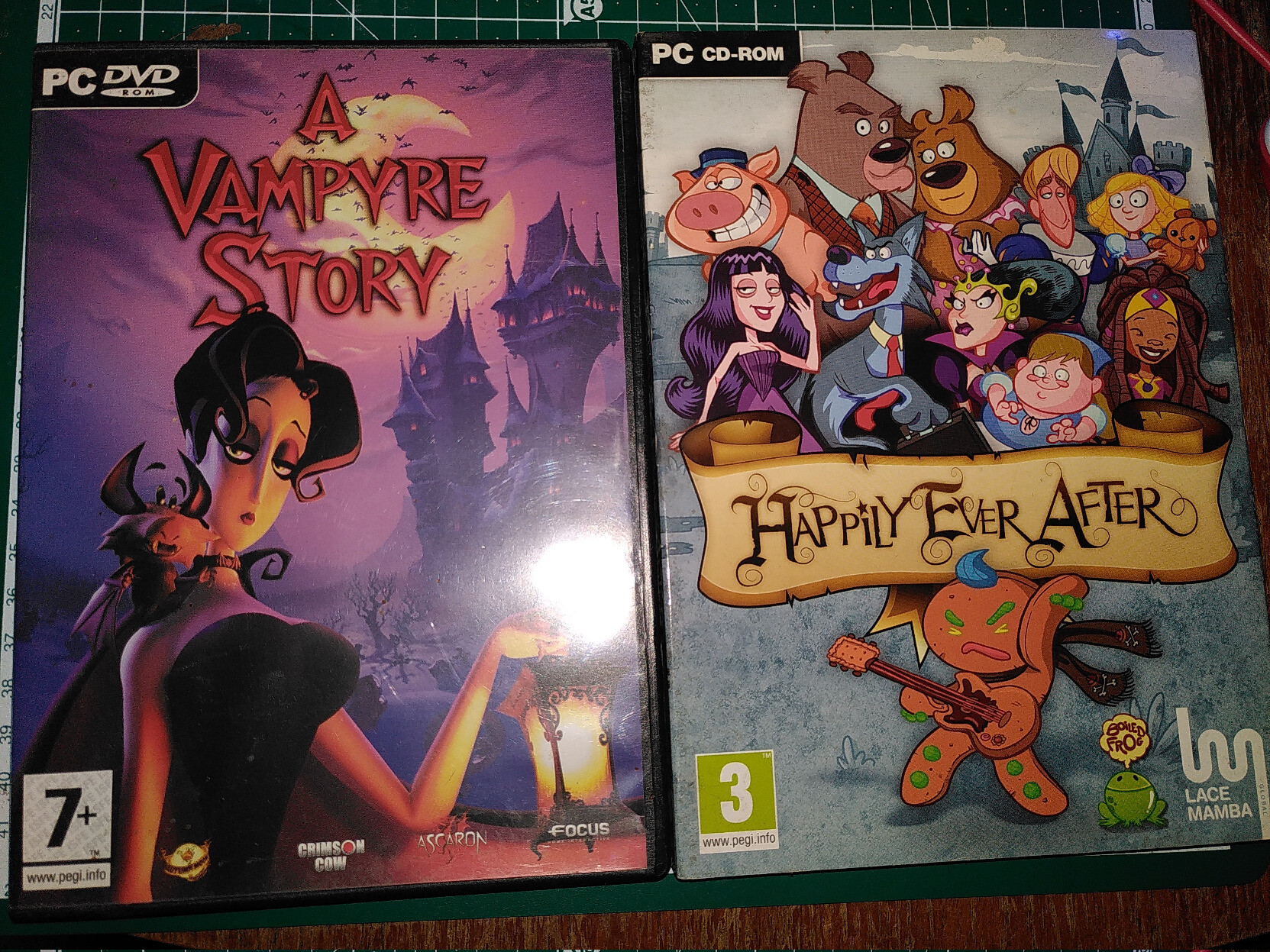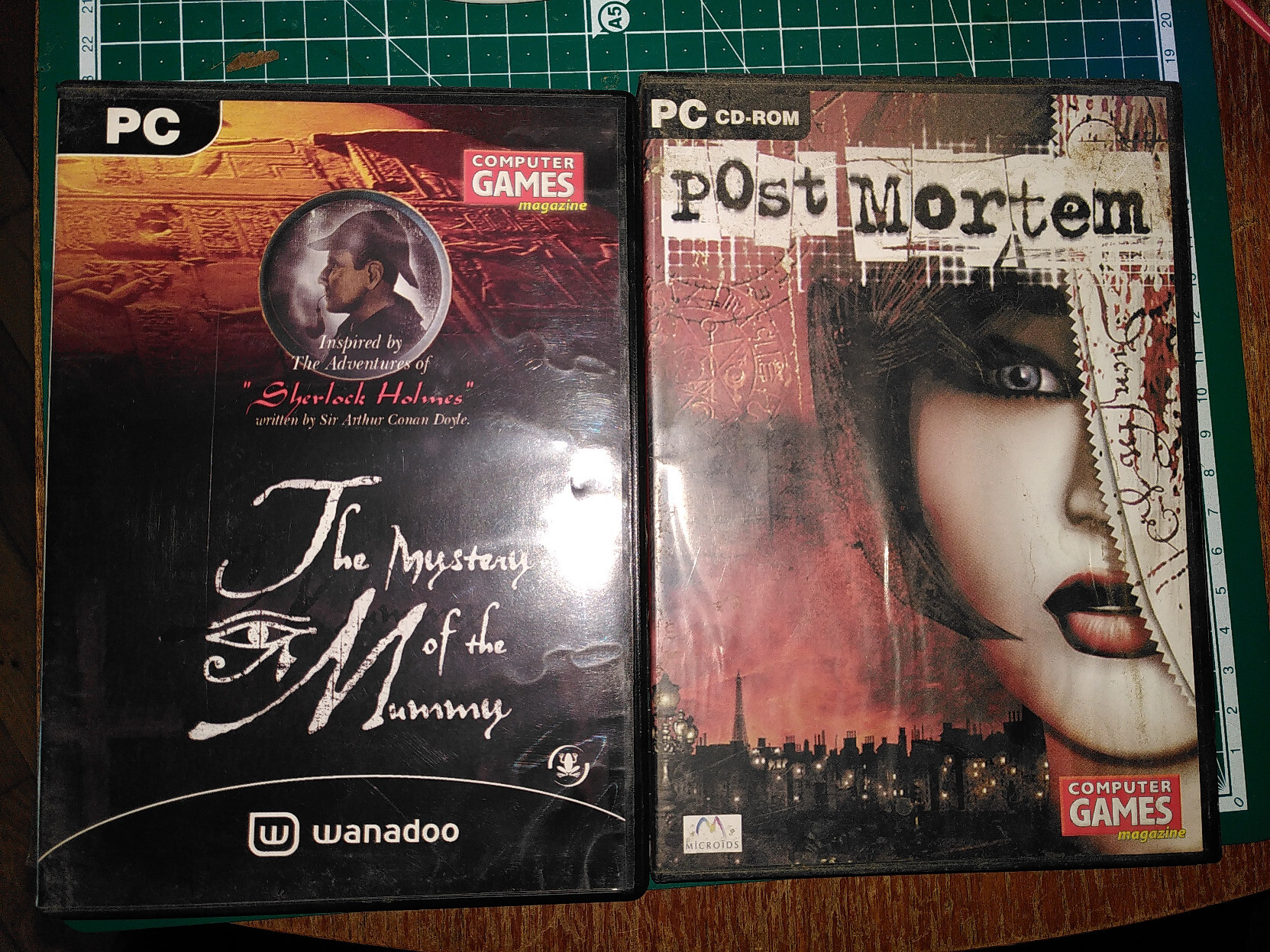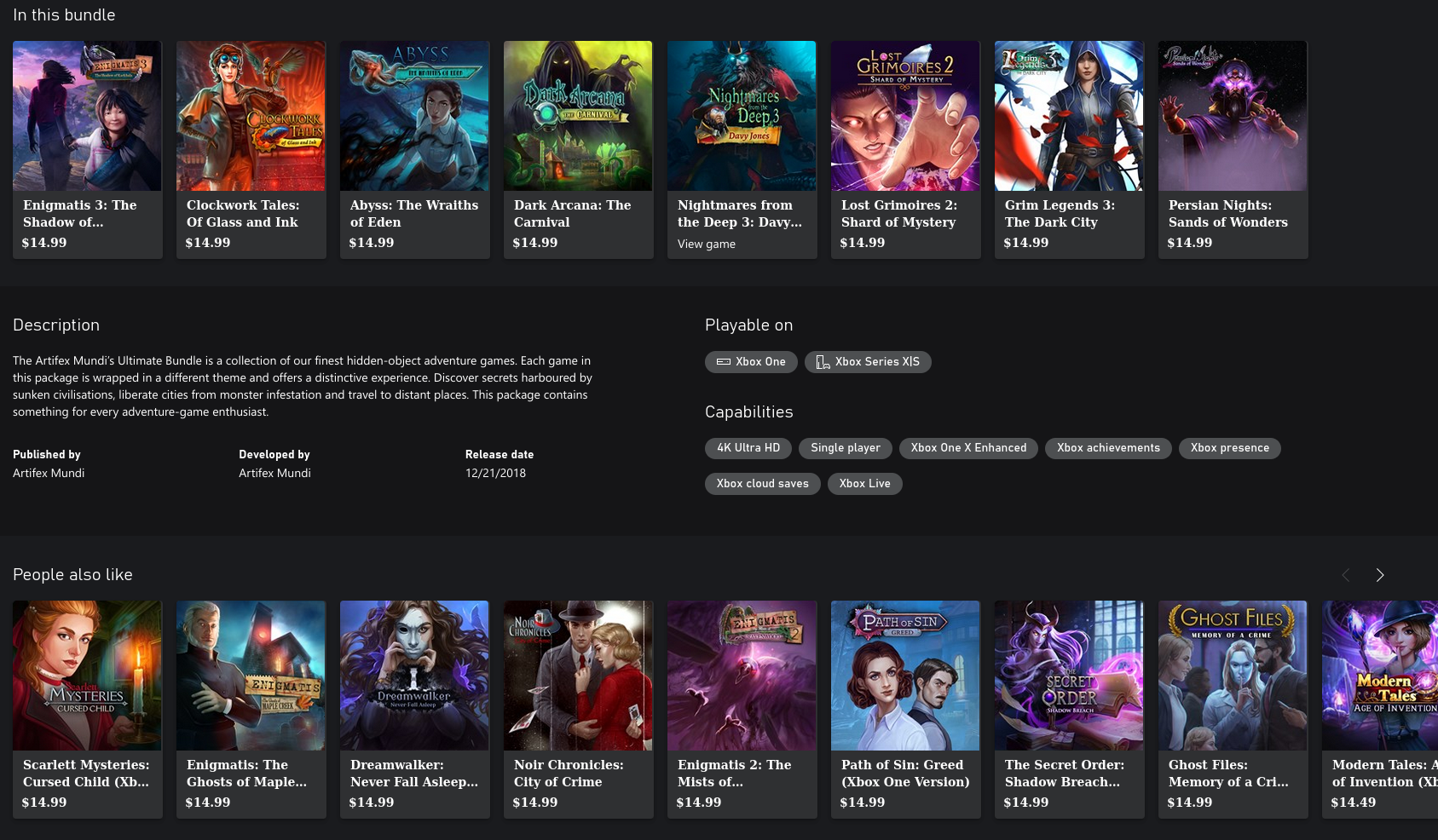Adventure never died
One notable effect of the purported “death of the adventure game”, generally pinned as occurring between ~1998 and ~2010 is that all the things that are definitely adventure games released in that period are ignored, as are most of their successors.

This includes boxed releases primarily aimed at a sector of the market that had relatively recently been redefined as “casual” (generally including women, people aged over 30, and anyone who didn't buy gaming publications).
You'll recognize some of these – A Vampyre Story is now regarded as an unfairly overlooked gem. Frogwares is famed for spearheading their genre niche in the years following The Mystery of the Mummy.

And Telltale Games (nothing of theirs pictured but you can't have this conversation without them) was somehow immune to every market force, until it suddenly wasn't. hums a tune in the key of “you can't grow and crunch everything all at once”
It's probably not very visible that about half the releases I have here are not from anglophone regions, even though anglo games represent the majority of the rest of my collection. It's not coincidental, either, although there was still a surprisingly strong market for these titles in the English-speaking world, contrary to popular presentations.
The catalogue of popular-but-unsung adventure games includes non-Visual Novel adventure game releases for portable platforms such as the PS Vita and 3DS, largely appealing to the same audiences, like the CSI and NCIS tie-in games, James Noir's Hollywood Crimes, Unsolved Crimes, Mystery P.I., Women's Murder Club, Midnight Mysteries, and so on.

And some of those touch on the most widely ignored and wildly popular adventure game subgenre:
Narrative hidden object/puzzle games.
These get a bit more attention now, with hybrids like Murder By Numbers coming to mind, but still has massive core franchises that are generally ignored.
New Mystery Case Files? Crickets from the gaming press. Queen's Quest? Never heard of her. Lost Lands? You can say that again.

Although Artifex Mundi is perhaps the most important breakout name in classic narrative HOGs, and hews very close to the genre's classic adventure game roots, it's Big Fish Games that's probably most widely synonymous with the Hidden Object Games. This is despite the company's recent efforts to tank its own reputation by leaning almost exclusively into the frankly unpleasant gambling side of its business.
Rival Legacy Games might just be able to eat their adventure gaming lunch at this point if their recent Amazon deals work to their advantage. Anyway, I digress.
Big Fish's site was and is a massive digital distribution platform for genre on home computers, but its audience – mostly women, not particularly young – didn't catch the imagination of a gaming press whose advertisers sought to appeal to a target demographic of mostly-youthful mostly-men.
The same publications' ads now target mostly-dads. Never let it be said that the industry doesn't move with the times.
The demographics of mobile gaming are better-documented, but similarly dismissed. I'm not going to even get started listing examples from the golden age(s) of mobile adventure gaming – some of them are famous, others are merely wildly popular, and they're all in danger of being forgotten due to the nature of the platforms.
I should note that I'm not a specialist in the demographics and statistics of games as a medium of entertainment, so excuse me if I've fucked up in my assertions. But I have worked in both the games and tech press and on the development side of things, including for mobile and casual publishers, and these observations and opinions are largely based on those parts of my background.